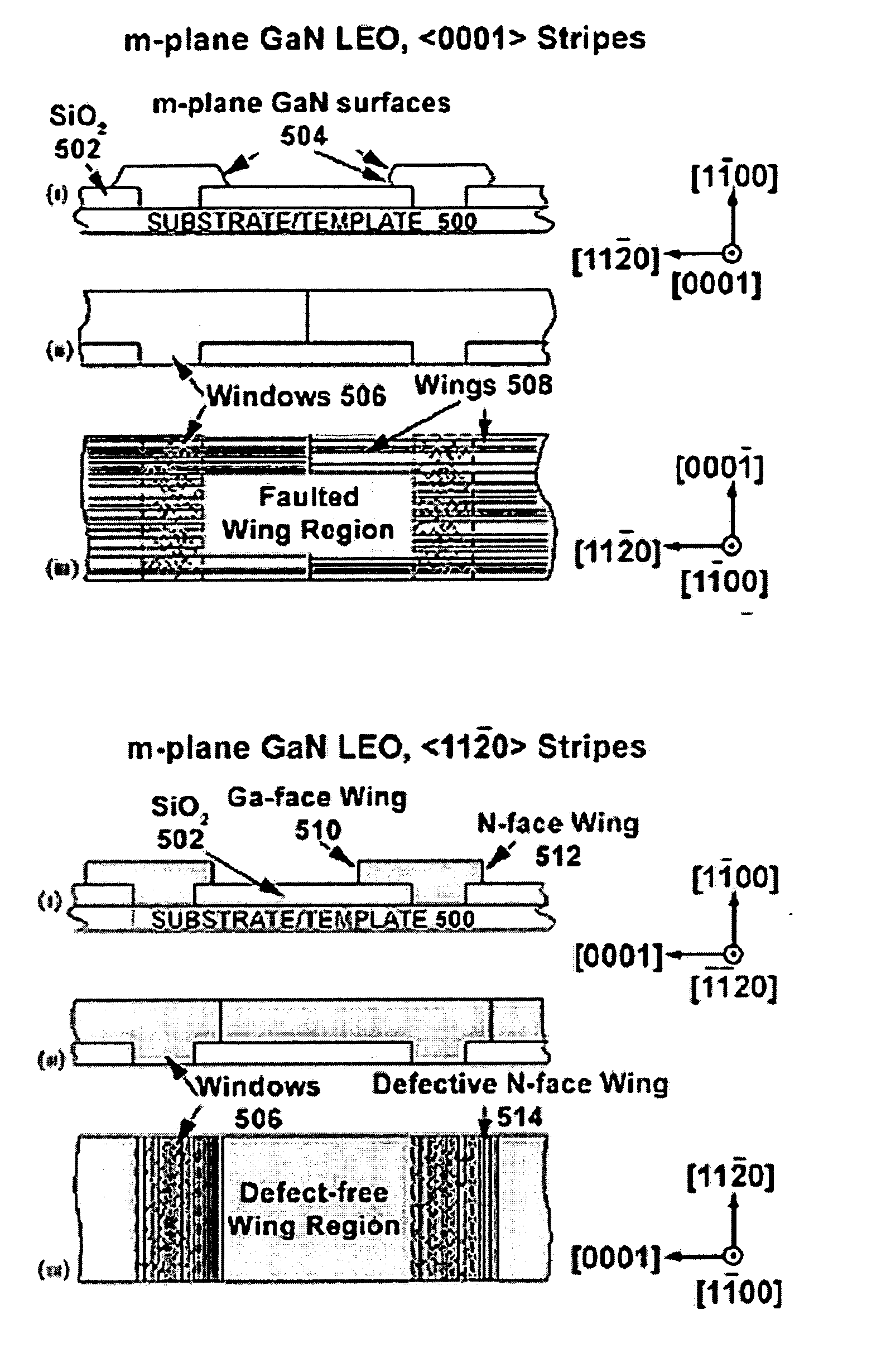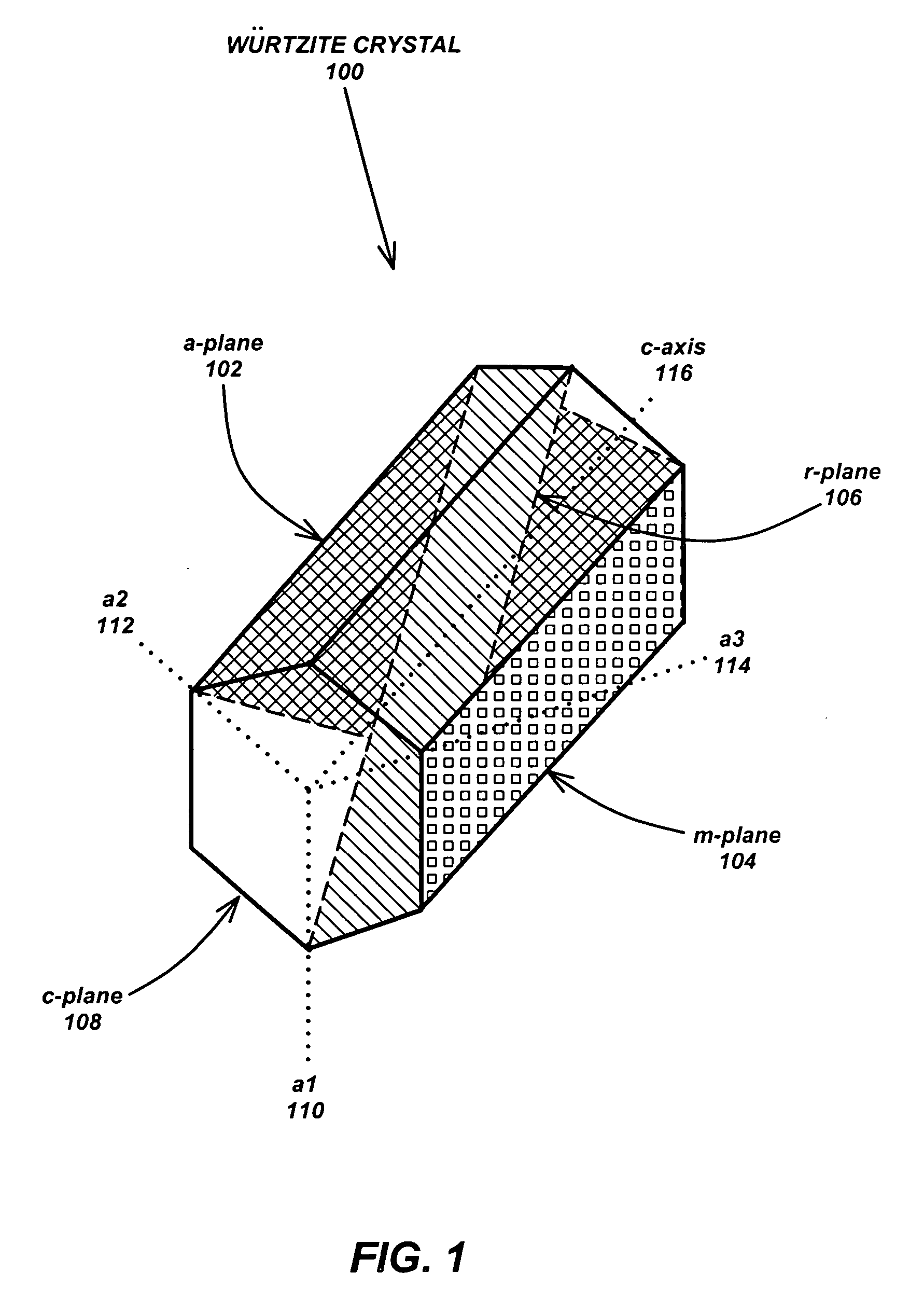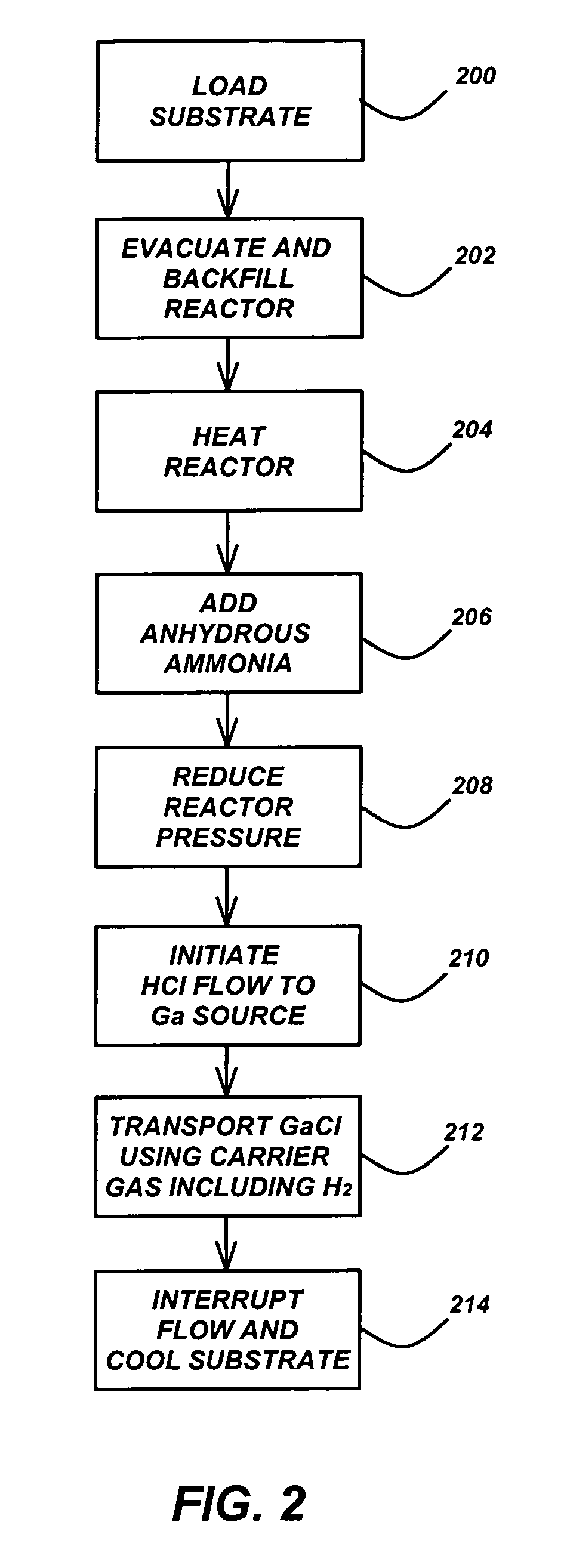Growth of planar reduced dislocation density m-plane gallium nitride by hydride vapor phase epitaxy
a gallium nitride and dislocation density technology, applied in the direction of single crystal growth, polycrystalline material growth, chemistry apparatus and processes, etc., can solve the undesirable quantum-confined stark effect of conventional c-plane quantum well structure in iii-nitride based optoelectronic and electronic devices, qcse, red-shifted emission, etc., to achieve the effect of reducing the density of structural defects
- Summary
- Abstract
- Description
- Claims
- Application Information
AI Technical Summary
Benefits of technology
Problems solved by technology
Method used
Image
Examples
Embodiment Construction
[0035]In the following description of the preferred embodiment, reference is made to the accompanying drawings which form a part hereof, and in which is shown by way of illustration a specific embodiment in which the invention may be practiced. It is to be understood that other embodiments may be utilized and structural changes may be made without departing from the scope of the present invention.
[0036]Overview
[0037]Growth of non-polar m-plane {1 100} nitride semiconductors offers a means of eliminating polarization effects in würtzite-structure III:nitride device structures. Current (Ga,Al,In,B)N devices are grown in the polar [0001] c-direction, which results in charge separation along the primary conduction direction in optoelectronic devices. The resulting polarization fields are detrimental to the performance of current state of the art devices. Growth of these devices along a non-polar direction could improve device performance significantly.
[0038]Previous efforts to grow thic...
PUM
| Property | Measurement | Unit |
|---|---|---|
| thick | aaaaa | aaaaa |
| temperature | aaaaa | aaaaa |
| temperature | aaaaa | aaaaa |
Abstract
Description
Claims
Application Information
 Login to View More
Login to View More - R&D
- Intellectual Property
- Life Sciences
- Materials
- Tech Scout
- Unparalleled Data Quality
- Higher Quality Content
- 60% Fewer Hallucinations
Browse by: Latest US Patents, China's latest patents, Technical Efficacy Thesaurus, Application Domain, Technology Topic, Popular Technical Reports.
© 2025 PatSnap. All rights reserved.Legal|Privacy policy|Modern Slavery Act Transparency Statement|Sitemap|About US| Contact US: help@patsnap.com



